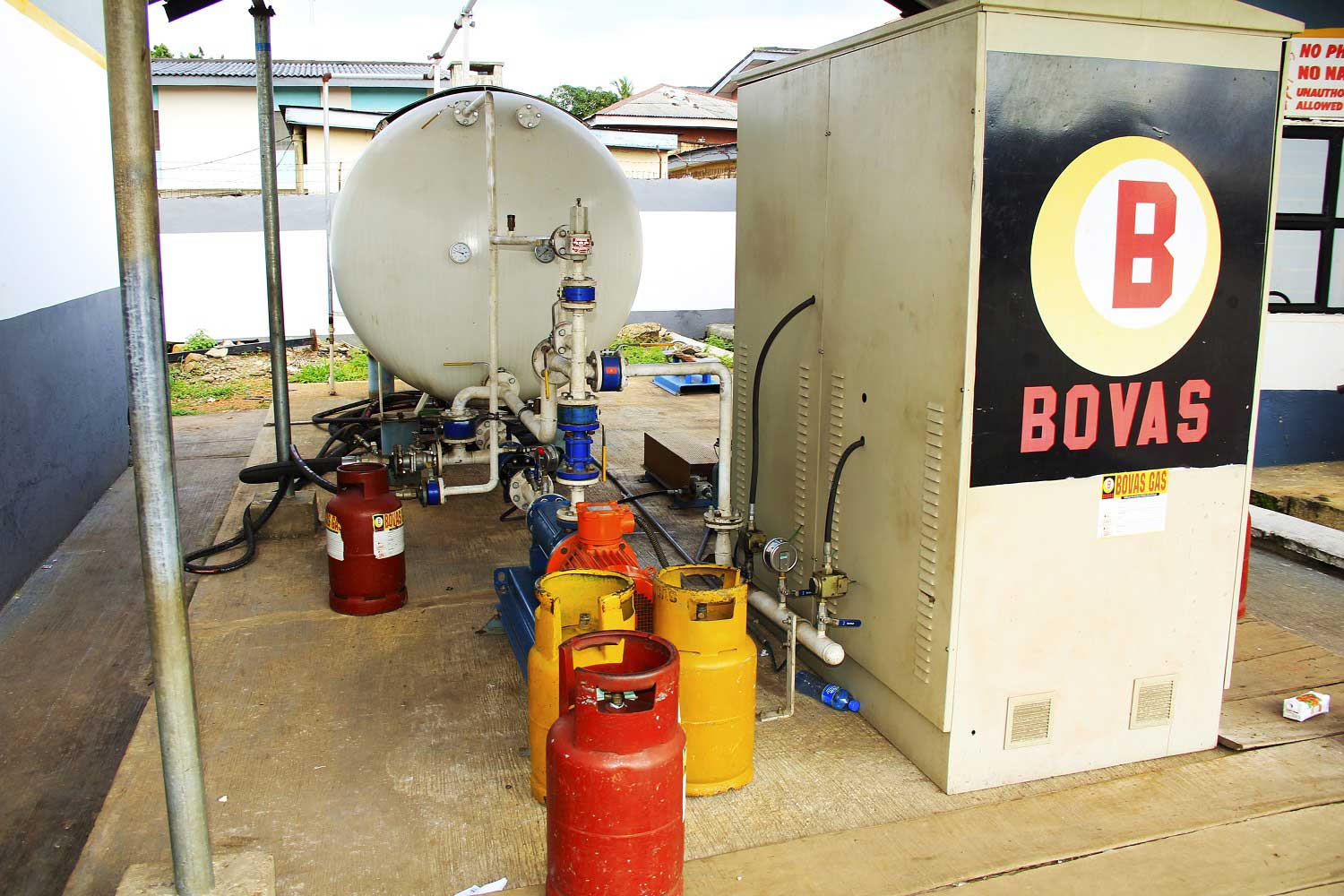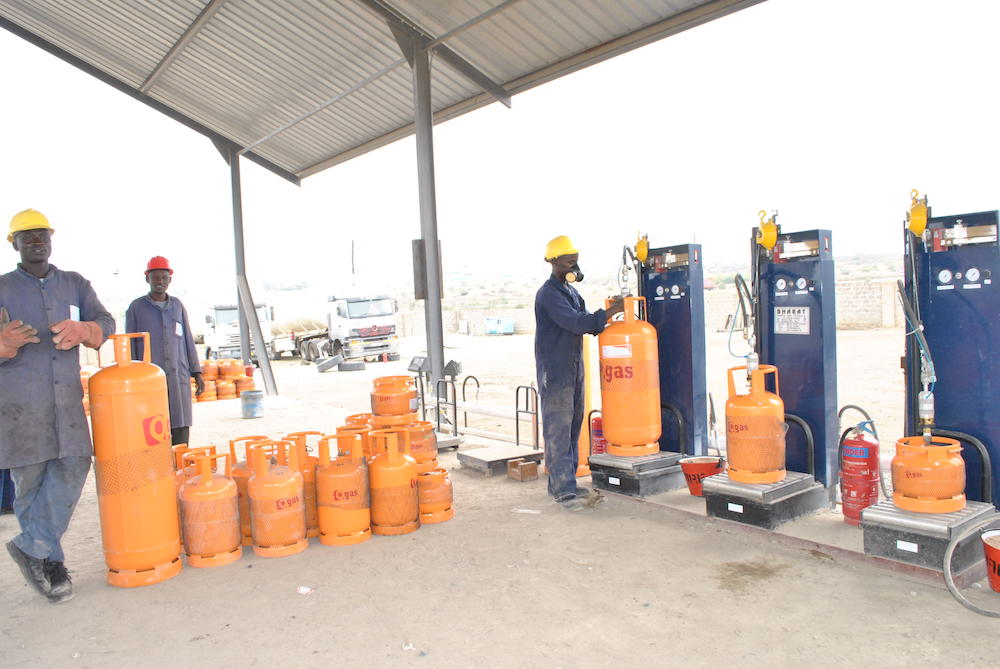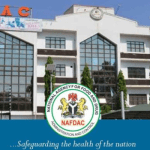 Nigeria’s regulator of standards in products and services is partnering with key actors, to sensitise the public on the dangers posed by mishandling of cooking gas and gas cylinders.
Nigeria’s regulator of standards in products and services is partnering with key actors, to sensitise the public on the dangers posed by mishandling of cooking gas and gas cylinders.
This is with a view to stemming the steady rise in gas explosions in recent times.
Correspondent Joke Adisa who who was at the workshop, reports that a gas cylinder is a pressurized vessel for storage and containment of gases
at above atmospheric pressure. It is a regular feature of majority of houses in the country.
Gas explosions as a result of misuse of these cylinders are becoming regular occurrences in Nigeria.
As at the last count, more than four explosions have been recorded across the country in the last two months. Fatal explosions occurred in Ondo, Akwa Ibom, Lagos and Jigawa states, killing no fewer than 20 people.
This is coming at a time when government has intensified campaigns on the need for the citizens to substitute gas for kerosene as a cheaper and
cleaner means of cooking.
There are fears that the increasing number of gas related mishaps may discourage the use of this alternative means of cooking. This is the essence of this sensitization workshop put together by Standards Organisation of Nigeria.
Indeed, not many users understand how to use gas cylinders and how best to handle them. At the workshop, inherent dangers in the misuse of liquefied petroleum gas and the gas cylinder is stressed and what precautions to take
In West Africa, Nigeria is the only country that does not practice the re-certification model.
This model entails thorough examination of Gas cylinders after the expiry date for recertification for up to three or four times.
This is why the authorities are mulling the adoption of a policy that will remove ownership of Gas cylinders from consumers.
Key players at this conference eagerly await the take off of the policy which they believe will help sanitise the system and bring to the barest
minimum, cases of gas explosions in the land.
 Nigeria’s regulator of standards in products and services is partnering with key actors, to sensitise the public on the dangers posed by mishandling of cooking gas and gas cylinders.
Nigeria’s regulator of standards in products and services is partnering with key actors, to sensitise the public on the dangers posed by mishandling of cooking gas and gas cylinders.
This is with a view to stemming the steady rise in gas explosions in recent times.
Correspondent Joke Adisa who who was at the workshop, reports that a gas cylinder is a pressurized vessel for storage and containment of gases
at above atmospheric pressure. It is a regular feature of majority of houses in the country.
Gas explosions as a result of misuse of these cylinders are becoming regular occurrences in Nigeria.
As at the last count, more than four explosions have been recorded across the country in the last two months. Fatal explosions occurred in Ondo, Akwa Ibom, Lagos and Jigawa states, killing no fewer than 20 people.
This is coming at a time when government has intensified campaigns on the need for the citizens to substitute gas for kerosene as a cheaper and
cleaner means of cooking.
There are fears that the increasing number of gas related mishaps may discourage the use of this alternative means of cooking. This is the essence of this sensitization workshop put together by Standards Organisation of Nigeria.
Indeed, not many users understand how to use gas cylinders and how best to handle them. At the workshop, inherent dangers in the misuse of liquefied petroleum gas and the gas cylinder is stressed and what precautions to take
In West Africa, Nigeria is the only country that does not practice the re-certification model.
This model entails thorough examination of Gas cylinders after the expiry date for recertification for up to three or four times.
This is why the authorities are mulling the adoption of a policy that will remove ownership of Gas cylinders from consumers.
Key players at this conference eagerly await the take off of the policy which they believe will help sanitise the system and bring to the barest
minimum, cases of gas explosions in the land.
 Nigeria’s regulator of standards in products and services is partnering with key actors, to sensitise the public on the dangers posed by mishandling of cooking gas and gas cylinders.
Nigeria’s regulator of standards in products and services is partnering with key actors, to sensitise the public on the dangers posed by mishandling of cooking gas and gas cylinders.
This is with a view to stemming the steady rise in gas explosions in recent times.
Correspondent Joke Adisa who who was at the workshop, reports that a gas cylinder is a pressurized vessel for storage and containment of gases
at above atmospheric pressure. It is a regular feature of majority of houses in the country.
Gas explosions as a result of misuse of these cylinders are becoming regular occurrences in Nigeria.
As at the last count, more than four explosions have been recorded across the country in the last two months. Fatal explosions occurred in Ondo, Akwa Ibom, Lagos and Jigawa states, killing no fewer than 20 people.
This is coming at a time when government has intensified campaigns on the need for the citizens to substitute gas for kerosene as a cheaper and
cleaner means of cooking.
There are fears that the increasing number of gas related mishaps may discourage the use of this alternative means of cooking. This is the essence of this sensitization workshop put together by Standards Organisation of Nigeria.
Indeed, not many users understand how to use gas cylinders and how best to handle them. At the workshop, inherent dangers in the misuse of liquefied petroleum gas and the gas cylinder is stressed and what precautions to take
In West Africa, Nigeria is the only country that does not practice the re-certification model.
This model entails thorough examination of Gas cylinders after the expiry date for recertification for up to three or four times.
This is why the authorities are mulling the adoption of a policy that will remove ownership of Gas cylinders from consumers.
Key players at this conference eagerly await the take off of the policy which they believe will help sanitise the system and bring to the barest
minimum, cases of gas explosions in the land.
 Nigeria’s regulator of standards in products and services is partnering with key actors, to sensitise the public on the dangers posed by mishandling of cooking gas and gas cylinders.
Nigeria’s regulator of standards in products and services is partnering with key actors, to sensitise the public on the dangers posed by mishandling of cooking gas and gas cylinders.
This is with a view to stemming the steady rise in gas explosions in recent times.
Correspondent Joke Adisa who who was at the workshop, reports that a gas cylinder is a pressurized vessel for storage and containment of gases
at above atmospheric pressure. It is a regular feature of majority of houses in the country.
Gas explosions as a result of misuse of these cylinders are becoming regular occurrences in Nigeria.
As at the last count, more than four explosions have been recorded across the country in the last two months. Fatal explosions occurred in Ondo, Akwa Ibom, Lagos and Jigawa states, killing no fewer than 20 people.
This is coming at a time when government has intensified campaigns on the need for the citizens to substitute gas for kerosene as a cheaper and
cleaner means of cooking.
There are fears that the increasing number of gas related mishaps may discourage the use of this alternative means of cooking. This is the essence of this sensitization workshop put together by Standards Organisation of Nigeria.
Indeed, not many users understand how to use gas cylinders and how best to handle them. At the workshop, inherent dangers in the misuse of liquefied petroleum gas and the gas cylinder is stressed and what precautions to take
In West Africa, Nigeria is the only country that does not practice the re-certification model.
This model entails thorough examination of Gas cylinders after the expiry date for recertification for up to three or four times.
This is why the authorities are mulling the adoption of a policy that will remove ownership of Gas cylinders from consumers.
Key players at this conference eagerly await the take off of the policy which they believe will help sanitise the system and bring to the barest
minimum, cases of gas explosions in the land.
 Nigeria’s regulator of standards in products and services is partnering with key actors, to sensitise the public on the dangers posed by mishandling of cooking gas and gas cylinders.
Nigeria’s regulator of standards in products and services is partnering with key actors, to sensitise the public on the dangers posed by mishandling of cooking gas and gas cylinders.
This is with a view to stemming the steady rise in gas explosions in recent times.
Correspondent Joke Adisa who who was at the workshop, reports that a gas cylinder is a pressurized vessel for storage and containment of gases
at above atmospheric pressure. It is a regular feature of majority of houses in the country.
Gas explosions as a result of misuse of these cylinders are becoming regular occurrences in Nigeria.
As at the last count, more than four explosions have been recorded across the country in the last two months. Fatal explosions occurred in Ondo, Akwa Ibom, Lagos and Jigawa states, killing no fewer than 20 people.
This is coming at a time when government has intensified campaigns on the need for the citizens to substitute gas for kerosene as a cheaper and
cleaner means of cooking.
There are fears that the increasing number of gas related mishaps may discourage the use of this alternative means of cooking. This is the essence of this sensitization workshop put together by Standards Organisation of Nigeria.
Indeed, not many users understand how to use gas cylinders and how best to handle them. At the workshop, inherent dangers in the misuse of liquefied petroleum gas and the gas cylinder is stressed and what precautions to take
In West Africa, Nigeria is the only country that does not practice the re-certification model.
This model entails thorough examination of Gas cylinders after the expiry date for recertification for up to three or four times.
This is why the authorities are mulling the adoption of a policy that will remove ownership of Gas cylinders from consumers.
Key players at this conference eagerly await the take off of the policy which they believe will help sanitise the system and bring to the barest
minimum, cases of gas explosions in the land.
 Nigeria’s regulator of standards in products and services is partnering with key actors, to sensitise the public on the dangers posed by mishandling of cooking gas and gas cylinders.
Nigeria’s regulator of standards in products and services is partnering with key actors, to sensitise the public on the dangers posed by mishandling of cooking gas and gas cylinders.
This is with a view to stemming the steady rise in gas explosions in recent times.
Correspondent Joke Adisa who who was at the workshop, reports that a gas cylinder is a pressurized vessel for storage and containment of gases
at above atmospheric pressure. It is a regular feature of majority of houses in the country.
Gas explosions as a result of misuse of these cylinders are becoming regular occurrences in Nigeria.
As at the last count, more than four explosions have been recorded across the country in the last two months. Fatal explosions occurred in Ondo, Akwa Ibom, Lagos and Jigawa states, killing no fewer than 20 people.
This is coming at a time when government has intensified campaigns on the need for the citizens to substitute gas for kerosene as a cheaper and
cleaner means of cooking.
There are fears that the increasing number of gas related mishaps may discourage the use of this alternative means of cooking. This is the essence of this sensitization workshop put together by Standards Organisation of Nigeria.
Indeed, not many users understand how to use gas cylinders and how best to handle them. At the workshop, inherent dangers in the misuse of liquefied petroleum gas and the gas cylinder is stressed and what precautions to take
In West Africa, Nigeria is the only country that does not practice the re-certification model.
This model entails thorough examination of Gas cylinders after the expiry date for recertification for up to three or four times.
This is why the authorities are mulling the adoption of a policy that will remove ownership of Gas cylinders from consumers.
Key players at this conference eagerly await the take off of the policy which they believe will help sanitise the system and bring to the barest
minimum, cases of gas explosions in the land.
 Nigeria’s regulator of standards in products and services is partnering with key actors, to sensitise the public on the dangers posed by mishandling of cooking gas and gas cylinders.
Nigeria’s regulator of standards in products and services is partnering with key actors, to sensitise the public on the dangers posed by mishandling of cooking gas and gas cylinders.
This is with a view to stemming the steady rise in gas explosions in recent times.
Correspondent Joke Adisa who who was at the workshop, reports that a gas cylinder is a pressurized vessel for storage and containment of gases
at above atmospheric pressure. It is a regular feature of majority of houses in the country.
Gas explosions as a result of misuse of these cylinders are becoming regular occurrences in Nigeria.
As at the last count, more than four explosions have been recorded across the country in the last two months. Fatal explosions occurred in Ondo, Akwa Ibom, Lagos and Jigawa states, killing no fewer than 20 people.
This is coming at a time when government has intensified campaigns on the need for the citizens to substitute gas for kerosene as a cheaper and
cleaner means of cooking.
There are fears that the increasing number of gas related mishaps may discourage the use of this alternative means of cooking. This is the essence of this sensitization workshop put together by Standards Organisation of Nigeria.
Indeed, not many users understand how to use gas cylinders and how best to handle them. At the workshop, inherent dangers in the misuse of liquefied petroleum gas and the gas cylinder is stressed and what precautions to take
In West Africa, Nigeria is the only country that does not practice the re-certification model.
This model entails thorough examination of Gas cylinders after the expiry date for recertification for up to three or four times.
This is why the authorities are mulling the adoption of a policy that will remove ownership of Gas cylinders from consumers.
Key players at this conference eagerly await the take off of the policy which they believe will help sanitise the system and bring to the barest
minimum, cases of gas explosions in the land.
 Nigeria’s regulator of standards in products and services is partnering with key actors, to sensitise the public on the dangers posed by mishandling of cooking gas and gas cylinders.
Nigeria’s regulator of standards in products and services is partnering with key actors, to sensitise the public on the dangers posed by mishandling of cooking gas and gas cylinders.
This is with a view to stemming the steady rise in gas explosions in recent times.
Correspondent Joke Adisa who who was at the workshop, reports that a gas cylinder is a pressurized vessel for storage and containment of gases
at above atmospheric pressure. It is a regular feature of majority of houses in the country.
Gas explosions as a result of misuse of these cylinders are becoming regular occurrences in Nigeria.
As at the last count, more than four explosions have been recorded across the country in the last two months. Fatal explosions occurred in Ondo, Akwa Ibom, Lagos and Jigawa states, killing no fewer than 20 people.
This is coming at a time when government has intensified campaigns on the need for the citizens to substitute gas for kerosene as a cheaper and
cleaner means of cooking.
There are fears that the increasing number of gas related mishaps may discourage the use of this alternative means of cooking. This is the essence of this sensitization workshop put together by Standards Organisation of Nigeria.
Indeed, not many users understand how to use gas cylinders and how best to handle them. At the workshop, inherent dangers in the misuse of liquefied petroleum gas and the gas cylinder is stressed and what precautions to take
In West Africa, Nigeria is the only country that does not practice the re-certification model.
This model entails thorough examination of Gas cylinders after the expiry date for recertification for up to three or four times.
This is why the authorities are mulling the adoption of a policy that will remove ownership of Gas cylinders from consumers.
Key players at this conference eagerly await the take off of the policy which they believe will help sanitise the system and bring to the barest
minimum, cases of gas explosions in the land.














